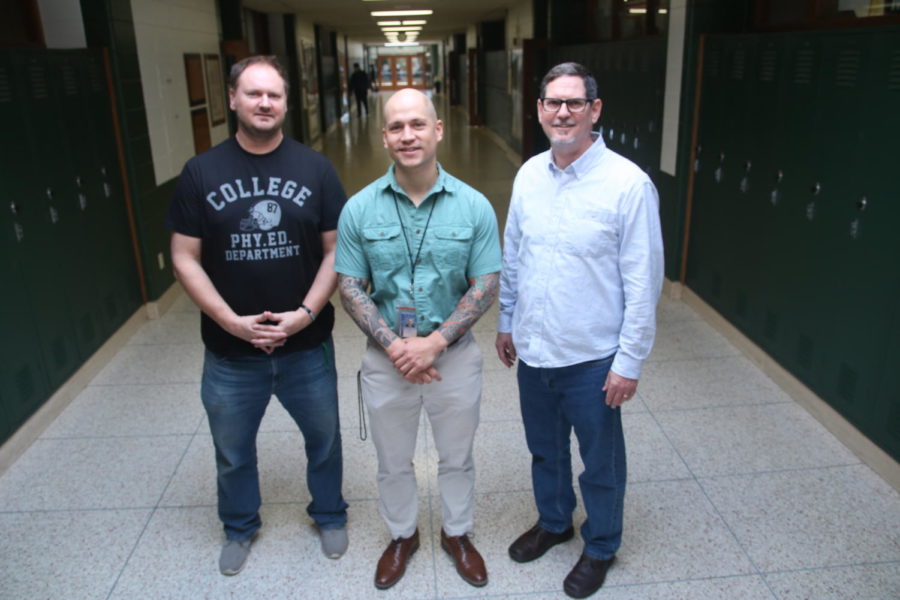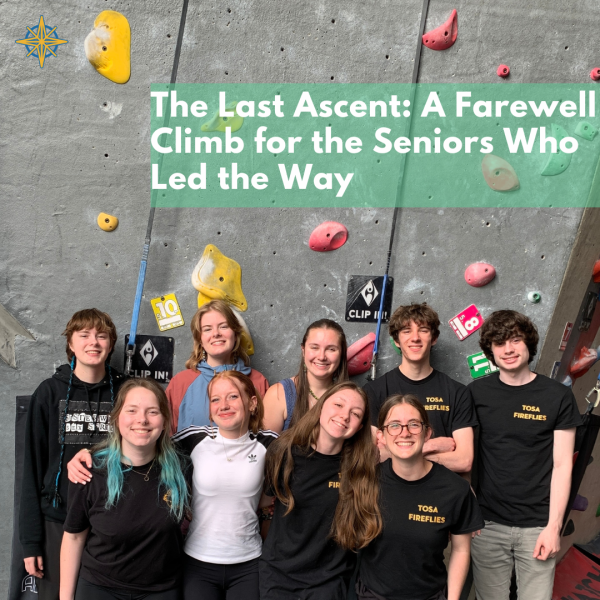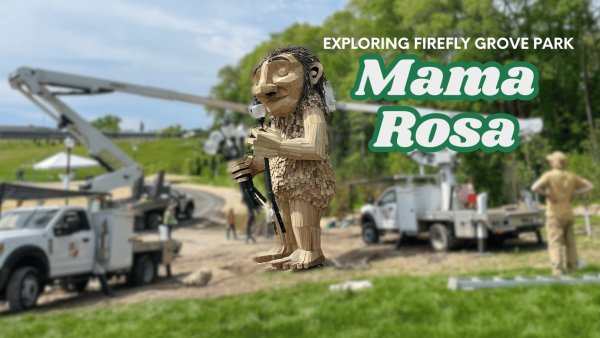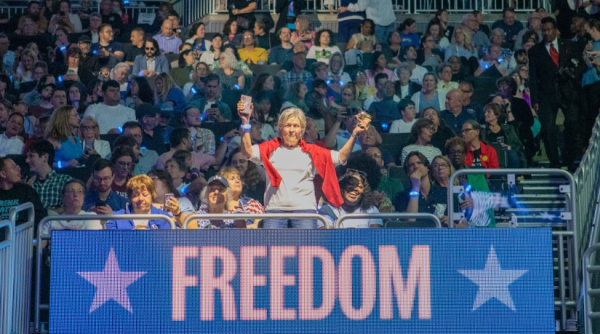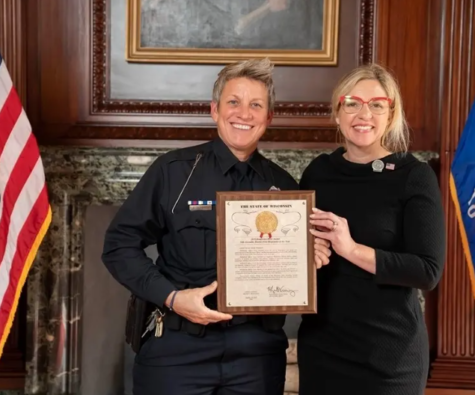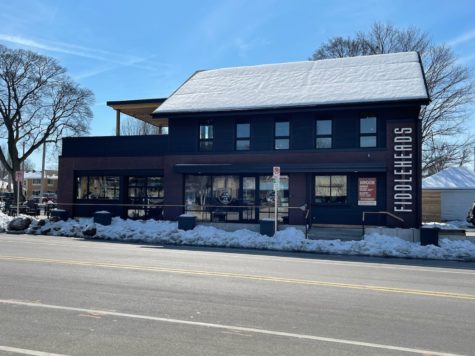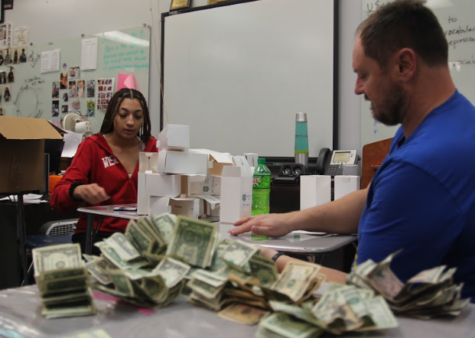Military Veterans Teaching at Tosa West
If you need help in math at Tosa West, you can find it in a small room in the back of the library. Educational Assistant Robert Dusel helps many students learn math.
Students may not know Dusel is also a marine veteran and served in the Marines out of college. To many, his service may seem ordinary- someone serves, gets back and works in the civilian world. But considering the shrinking military, having a veteran working among today’s youth could create a lasting impact on our nation.
“I think a big reason is civilians have the wrong idea of what the military is, in general. They think, “You’re in the military, therefore, you’re constantly shooting at people, you’re constantly at war. They don’t realize that 9 out of 10 jobs are just regular civilian jobs,” said Dusel.
Each branch of the military and MOS (Military Occupational Specialty) teaches a different set of valuable skills.
Special Education teacher David Keech served in the Marine Corps where he was a Combat Engineer.
“That involves explosives, demolitions with mines, anti-tank, anti-personnel, construction, and obstacle construction and destruction. I don’t get to blow things up anymore, which was a lot of fun. But, the soft skills, attention to detail, having high expectations for yourself and for the people that you work with, and who may work for you, and taking care of other people.”
Though it’s hard to imagine how military skills translate to everyday life, much less an educational setting, there are many areas that they are visible in, through experiences that they can share with students or experiences teaching people.
Social Studies teacher Chad Mateske served in the Army Reserve for over 10 years. He feels his military experience brings a unique perspective to the classroom.
“Some things that the other history teachers could talk about what they read on a computer, but I’m the only history teacher in the building that can talk about what it feels like to shoot a machine gun. From what it’s like to throw a grenade to what it’s like to throw a gas mask, I think that I am able to offer a unique take on history when we get to wars because of that background. My students get to benefit,” said Mateske.
For Dusel, the military sharpened his ability to communicate with high school students.
“I was a sergeant, and when you’re a sergeant, you have a lot of Marines under you. I always had to communicate well and in a way that they would understand, because they’re straight out of high school,” said Dusel.
One thing they all have in common is a broad knowledge of recruitment, enlistment, and service that they can pass down to their students.
Keech attended the University of North Carolina where he was a history major. “I didn’t know much about the Marines until my senior year in high school, and I was looking at different options for college, and I found out about ROTC scholarships. So, that’s how I got in the Marines,” said Keech. “I might have been better off if I had enlisted right out of high school, and had four years to mature a little bit. I was not the best or most focused student in college. If I had enlisted and had that opportunity to mature and develop some soft skills, I probably would have been a much better college student than I ended up being, but it all worked out.”
People who enlist after first attending college are eligible to be Officers, who not only are leaders and supervisors but receive higher pay. Many students are in ROTC (Reserve Officer Training Corps) programs all around the nation, and many students serve in the Army Reserves.
“My first semester of freshman year in school, the Black Hawk Down incident in Somalia took place. They shot down some of our Black Hawk helicopters. There was a battle in the streets, and I’m sitting here in my dorm room watching this unfold, and that kind of frustrated me. I thought, “That’s not right, something needs to be done about it.” I could kind of meet a couple of different potential goals or thought processes together by joining the Army Reserves and still stay in college, for the most part, then that’s the route I ended up choosing,” said Mateske.
Dusel and Keech both spoke about self-assurance in the recruitment process and the importance of knowing the path of service you plan to take before you begin.
“You got to be ready to go where they want you to go and to do what they tell you to do. You know, it has benefits and drawbacks. So just to be sure you’re doing the thing that you want to do,” said Keech.
And, what you sign up for and choose to do will translate to every day of your life in the military.
“My biggest, biggest advice is the job. You need to do your research on what job you’re going for, and make sure you get it. Tell your recruiter “This is the job I want,” and make sure you get that. They might try to talk you out of it or something because they have quotas to fill. You’re going to meet so many people in the military that are like, “God, I wish I had a different job,” and “Oh, I wish I would have done this,” “I should have done that.” You want to get the job you want because you’re going to be spending four years at that job,” said Dusel.
Though being in the military is a commitment that will shape the duration of your life, veterans speak to many rewarding experiences.
“Benefits come from having served in the military, whether they be financial, whether they be skills-based, experiences of camaraderie and brotherhood and sisterhood. You can’t replicate some of those things,” said Mateske.
Mr. Keech also spoke about the unification that service brings.
“A common experience was a great unifier in general. Whether you were miserable, or whether you had a great time, consider, “I did that, and I did that with these people.” And that’s a bond that you have, regardless of where you came from,” said Keech.
Every branch of the military, every MOS, and every rank provides a unique experience and teaches exclusive skills. Due to the declining enlistment rates, more high schoolers need to consider a service path.
“Countries need men and women that are willing to fight for their existence. We just happen to live in a comfortable spot. We’ve got allies to the north and allies to the south, we’re not really under threat. You look at other countries like Ukraine that are under threat, and their civilians had to stand up, and fight for their country’s survival. I think young Americans really should value the protection of their country. We have to figure out some way though, to get through them, and for more people to join,” said Dusel.
The Tosa Compass is the only dedicated Wauwatosa newspaper, providing quality news coverage. Your donation will support the student journalists of Wauwatosa East and West, helping us purchase equipment and cover our annual website hosting costs.



